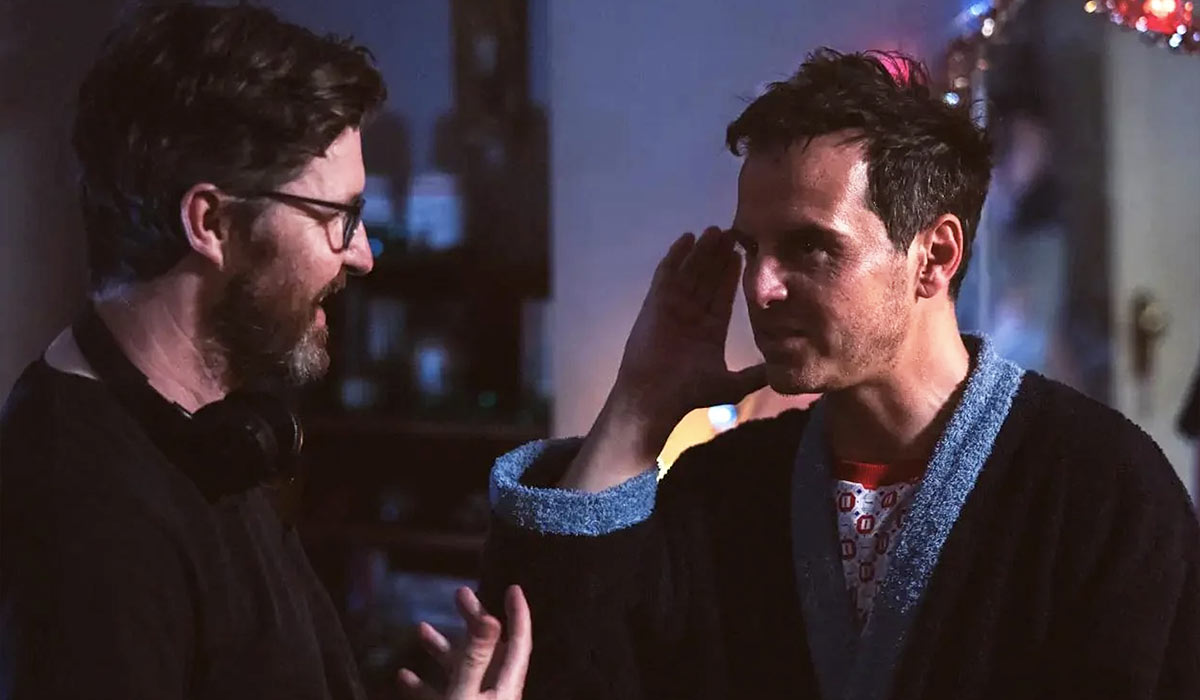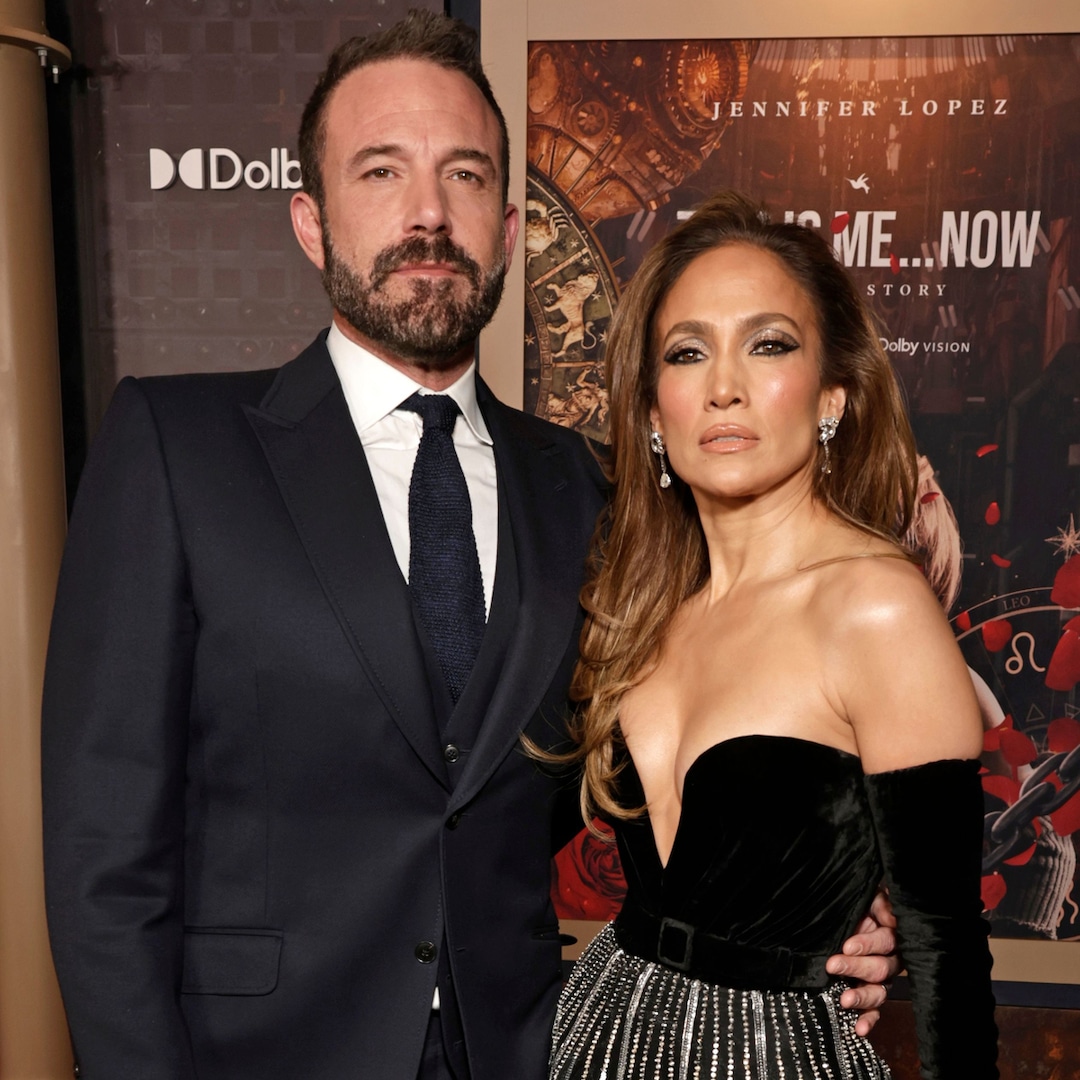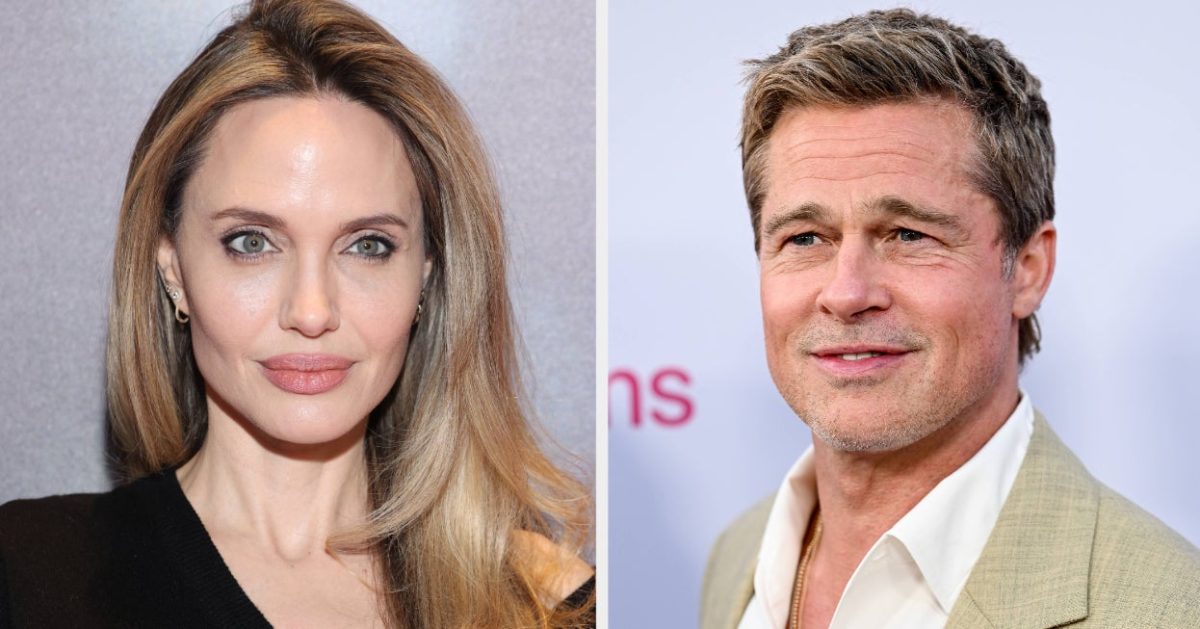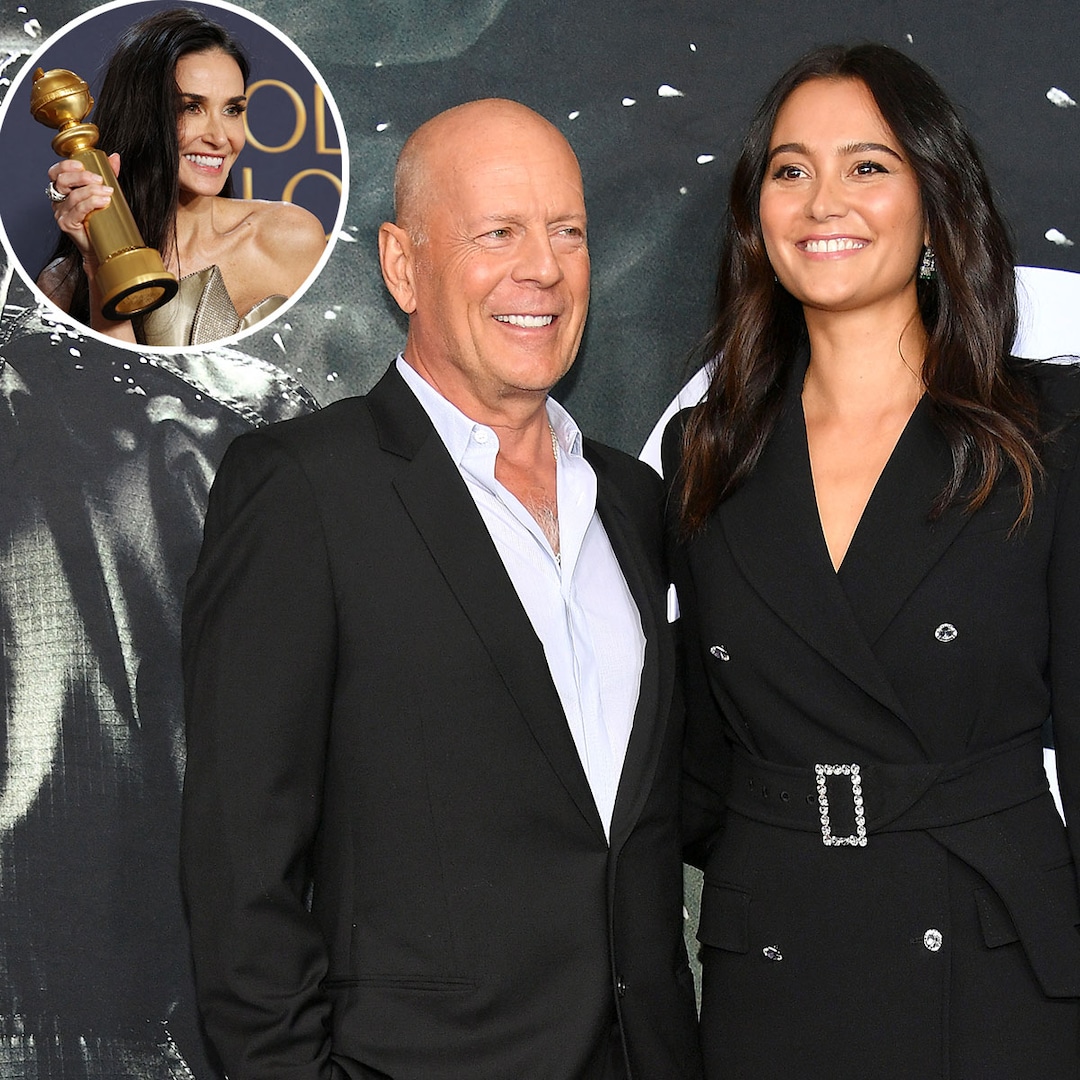
The Moving Words From Andrew Haigh’s Father Before He Filmed The Acclaimed Drama [Interview]
Nov 21, 2023
There is a sequence of scenes in Andrew Haigh‘s acclaimed drama “All of Us Strangers” that will surprise both straight and queer audiences, but it’s not what you think. Sure, there is another buzzworthy sex scene between stars Andrew Scott and Paul Mescal for a fall movie season seemingly full of them. And, there are borderline supernatural moments that make you wonder what’s really going on, but the scenes we are referring to are actually more grounded than the film’s overall ghost story narrative.
READ MORE: “Poor Things,” “All of Us Strangers” and “The Holdovers” get Telluride Oscars boost
It’s a common misconception that when someone gay or LGBTQ+ comes out to their parents, that the mother is usually more accepting of the news than the father. According to Haigh that wasn’t the case with his family or that of many of his friends. That personal experience is one reason “Strangers” finds its main character Adam (Scott), surprised that the apparition of his mother (Claire Foy) is taken aback after discovering her adult son is gay. Instead, it’s his father (Jamie Bell), who has the more encouraging reaction.
Since the “Strangers” world premiere at the 2023 Telluride Film Festival, Haigh has spent the last few months conducting interviews and Q&As across the United States and the U.K. about the movie. It wasn’t until a post-screening conversation earlier this month with this writer, however, that he revealed a personal connection to that scene between Scott and Bell’s characters. Sadly, his father was admitted into a “dementia home” while Haigh was in production on the film.
“I went up to see him the weekend before I shot that scene,” Haigh explains. “And I sat down with him, and he had no memory of me being gay, which is a very strange thing when he’s known I’ve been gay for 30 whatever years. And he had no idea. And it was like, ‘Oh, have you got a wife?’ And I was like, ‘Oh Christ. I have to come out again and I’m 50.’ And I was like, ‘What the hell?’ And I didn’t tell him. I didn’t say anything. I couldn’t, at that moment, come out. I felt the same fear that I felt when I was like 20, and it was a very strange experience. But then he said something which was just… I don’t know, it feels like it’s true to the film as well. He said, ‘Well, as long as you’ve found love, then that’s good.’ And so it was a really special moment for me, but then I came back and then had to shoot that scene the next day with him coming out to his dad. So it was a lot. That was a strange day. But I don’t know. I feel like sometimes when you’re making things, the rest of your life gets sucked into it in what can be a good way, as well as a complicated way.”
Over the course of our wide-ranging conversation, Haigh also spoke more about his personal connection to adapting the original “Strangers” novel, how Scott and the rest of the cast came on board, snagging the tough-to-land music rights of the Pet Shop Boys, those empty London apartment towers and, oh yes, the awkwardness of actually shooting in his real childhood home.
Note: There may be some inferred spoilers in the context of the Q&A below.
____
The Playlist: How did this project come your way? What made you want to jump into this world?
Andrew Haigh: Yeah, the producers sent me the book. I’ve not read the book or heard of the book, but they knew I was interested in doing some kind of ghost story, I suppose. And I read it, and there was something about the central idea of going back and revisiting your past, your parents, a time that’s long gone that I just couldn’t get out of my mind. And the original story’s pretty different. It’s like a very traditional Japanese ghost story. There’s a benevolent spirit that’s draining the life out of Adam. And there’s these other elements to the story that I wasn’t as interested in using. But it still had this kind of melancholic tone. It was about a screenwriter struggling to deal with grief and loss and the past. And it sort of felt like the perfect way to hang so many things that I’m interested in on that kind of concept, but something very different than I’ve done before. It’s almost like I can bring all the themes I’ve been interested in before but now put them within this slightly bigger metaphysical story.
Were there elements from the book that you felt you had to keep?
Not really, apart from there’s parents in it who are dead. That’s the main thing that I’ve kept. And it’s about a straight couple. It’s not a gay couple. But I still think there’s a tonal similarity. I think if you read the novel, you feel the loneliness of that central character and his need to go back and deal with his past, deal with his grief, and deal with loss in many forms and move forward. But I decided to put myself into that space of the story.
Did you base Adam’s character on anyone you knew? I feel like anyone who is a gay man, or queer of a certain age, can relate to what he’s gone through in his life. And I’m curious what your inspiration was for him.
I mean, look, he’s definitely a version of me. There’s no denying it, but I would say that kind of all of the characters are some twisted version of me, even the mother. But I definitely took it from a personal place and a lot of the things that are discussed in it, and the stories that he tells are related to me and my life. But the reason I kind of knew that I wanted to be very specific in the film about a certain man of a certain generation. And so it made sense that, that specificity would come from me. And I think that is the way to unlock something more universal. In a story, you drill down into those specifics that weirdly more people can then relate to it.
Speaking of Claire Foy’s character, the mom, I think so many people who are LGBTQ+ always think, “Oh, my mom will deal with this better than my dad is going to.” And that’s not necessarily true. What made you decide to flip it in this version? Was it a personal experience?
I mean, yeah. It was a personal experience, but also the personal experience of lots of people that I know of my generation. There’s this idea that it’s always the dad that’s the one that doesn’t get it. But from people I know, the mother had a tougher time. And I think that’s also down to the pressure that’s put on motherhood and what the world says a mother should be and what a mother should do and what they should care about and that if something goes wrong with their child’s upbringing, it’s their fault. So it was important to me that while it was compassionate to the Adam character, it was also compassionate to the parents as well. We’re going back into the mid-’80s. The mid-’80s was a very, very different time than what is happening now.
Do you consider it sort of like a Rorschach test whether people think it’s a happy ending or a sad ending at the end?
I am intrigued by what people think because there are different reactions. A lot of queer people that I speak to, they find it more hopeful at the end. And that makes complete sense to me because I think if you grow up gay, you…especially in a certain time, that love was literally not a possibility for you. I knew growing up that I never thought I would ever meet anybody, and that could be an actual way of life. And so I think the very fact that he understands himself enough and has dealt with stuff in order to be able to love is, to me, a very, very hopeful thing. And also I guess a lot of people lose the love of their lives, and they certainly did lose the love of their lives. A lot of queer people did. And so I think that was part of what was in my heart when I was making it too, that just the love, again, is the essential part.
In terms of the story structure, and the directing, did you have certain rules that you felt you had to stick to in order to depict the “ghosts” or apparitions or however you want to refer to them in the film?
I mean, there is. I think if you re-watch it, there was a kind of logic if there can be a logic to ghosts. I don’t know what even that means. It makes no sense, but there is a logic within it. But then at the same time, I sort of didn’t care too much about that logic. I mean, look. I think what’s interesting to me is that all of the characters, usually ghosts don’t have their own sense of self. And all of these characters also have their own sense of self. The mother and father become their own people, who have their own fears, doubts, wishes, and regrets. And, in many ways, I saw the film as all of these people emerging into this story out of a collective longing for understanding, to be known, to love, and that all of these people arising into the story. So that’s kind of how I saw it. And then I quite liked the idea of it not existing like a traditional ghost narrative.
I also like that as well. I like that you can think what you want it to be, in many ways. This cast is utterly incredible. Were you thinking of any of them while you were writing it? Or is it one of those things where you write your script, put it down, and then stop and sort of ponder from there?
Yeah, I didn’t think about them when I’m writing it. I never picture faces when I’m writing. I don’t know why. I just don’t. And I don’t like to think of actors at that stage, in case I can’t get them. Or they don’t want to do it, or it’s too complicated. So, when we finished, I knew that I wanted the lead to be someone that was gay. In real life, I don’t necessarily think it has to be, in terms of casting, but for this, I felt like it did have to be. There was too much nuance that I was trying to get about that experience. And I loved Andrew for a while as an actor. And I just sat down with him, and we talked about the script. And he understood it, and he got it. And he had a deep emotional connection to it. And that’s just what you want. I almost want the actors to come to me and say, “This is why I want to do it,” not, “Please do my film.” It is like you want to know why they want to do it. And it was the same with Jamie and the same with Claire and then the same with Paul as well. It’s like I wanted to know why they wanted to make the film.
I’m curious about Paul’s character. Did you always write him a good 10 or 15 years younger than the Adam character? Or was it just something that, in Paul’s casting, you sort of stumbled upon?
I was really open to whatever it could be. And Paul wasn’t available to start with. And we went to quite a lot of people, actually. All of them had turned it down. And we talked about a lot of different types of people that could play this role. But I feel in the original book, the man is with a younger woman, and there was something generationally interesting. I feel like you’ve got Paul’s character. You’ve got Adam’s character, and then you’ve got the parents. And they’re all different generations essentially. And I sort of liked what that did to the story and made a comment, I suppose about the difference between a younger queer person and an older queer person, both the differences and the similarities that can still exist in what it’s like to be queer in the world.
So one of the great things about this film is you actually shot it on film, which is increasingly rare these days, or somewhat rare I guess. And I don’t know if most people know this, but most film reels are only five minutes. And there is one shot in this film that is a one-take, and the timing is sort of almost a lost art in some way. Can you talk about the scene and what you guys had to get through just to make sure that the film did not run out before it was supposed to?
I mean, it’s the ridiculous nature of making films. You’re trying to capture this beautiful magic. And then, it’s the scene when they’re all in the bed, and he’s talking to his mom. And then Jamie is there, and then Paul appears. And it’s one take. And yeah, it was all shot on film, and I think the first fight takes kept running out. So the film would just roll out, and I’m going, “Oh God,” sitting behind the monitor, losing my mind. And then you just say, “Please can you just speed it up a little bit,” just less pauses. And they’re like, “Well, we’re just doing… “No. Less pauses please, because we’re not going to get the ending.” Because I knew I wanted it to be one take. And it was a weird experience because that was my actual childhood home that was on screen. That was the real house that I used to live in as a kid. And I hadn’t been there for 42 years. And we went back, and we knocked on the guy’s door. And he was like, “Oh yeah, you can film it.” And then I sort of recreated it to look like my house. So, the scene in the bed is my parents’ old bed. It’s where they used to go to bed at night, and I used to come in and try and get into bed with them. So there were so many strange, odd connections and weirdness making the film that wasn’t necessarily emotionally good for my mind.
What did your parents think of you going back to the house that they used to live in to do with this?
Well, my mom’s seen the film. My dad isn’t able to see it. But my mom has seen it and yeah, it’s a weird experience for her. I had to put a special screening on for her because it’s not an easy film for her to watch. And there are lots of things between the lines that say a lot about my family that other people will not necessarily know, but my mom and my family know. It was a complicated experience for her as well. But she loves the film, so that’s good.
You’ve made some very personal films that we assume were personal to you, obviously “Weekend,” your breakout feature. Do you consider this your most personal film to date?
Yeah, I think it is the most personal thing I’ve done, which is weird, seeing it is also an adaptation. So it’s both of those things at the same time. But I really think it came out of a time as well. I wrote most of it during the pandemic. I was in LA. It’s where I was living. I was a long way from family and friends, and I spent a long time just going inside and thinking about things. And so I felt like, in a weird sense, once I wrote the script, I didn’t think it would ever get made. And I quite like that as an idea when you’re writing a script that is personal, because then you’re not terrified about things as much. Because you think, “Well, no one’s going to see it, so it’ll be fine.” It was the same when I wrote “Weekend.” I said, “Well, no one’s going to see it. It probably won’t get made.” And then it does get seen, and then you’re like, “Ooh.” So yes it is. But it was always the reason to make it personal was not that I felt like I needed to show the world how I see the world. It was just that I felt like I threw everything I could into it and made it, as I said before, specific and allowed myself, I suppose, to be vulnerable in the story I was telling, then that would come across within the making of the film. You would feel that coming out of the screen, and that would allow the audience to also engage in it on their own personal level.
Knowing it’s an adaptation, was there any particular scene that you felt was more difficult for you to get on the page, or to direct, because it meant more than maybe other people in the crew realized?
I guess the scene with the dad and him talking to the dad and that kind of scene there, was a very hard one to shoot. My dad had just gone into a dementia home when I was making the film, and I went up to see him the weekend before I shot that scene. And I sat down with him, and he had no memory of me being gay, which is a very strange thing when he’s known I’ve been gay for 30 whatever years. And he had no idea. And it was like, “Oh, have you got a wife?” And I was like, “Oh Christ. I have to come out again and I’m 50.” And I was like, “What the hell?” And I didn’t tell him. I didn’t say anything. I couldn’t, at that moment, come out. I felt the same fear that I felt when I was like 20, and it was a very strange experience. But then he said something which was just… I don’t know, it feels like it’s true to the film as well. He said, “Well, as long as you’ve found love, then that’s good.” And so it was a really special moment for me, but then I came back and then had to shoot that scene the next day with him coming up to his dad. So it was a lot. That was a strange day. But I don’t know. I feel like sometimes when you’re making things, the rest of your life gets sucked into it in what can be a good way, as well as a complicated way.
You secured the rights to use “Always on My Mind” by the Pet Shop Boys. And most people probably don’t know this, but they don’t approve that master very often for people to use. Were you afraid they’d say “no”? Did you have a backup?
Yeah, I don’t really have backups for anything. So, all of the songs that are in the film are in the script, even the songs that play in the club and everything. It was all scripted. And luckily, everyone agreed. Frankie Goes to Hollywood agreed and Pet Shop Boys agreed. So, I got all those songs in, and they’re just basically songs I loved growing up and meant a lot to me and do have a pretty queer sensibility as well. And I think pop music, especially, has this amazing ability to drag you back to your childhood. You can feel what it like to be a kid again. And those songs especially they’re all British songs. We’re quite a reserved bunch of people sometimes or we were back then. And those pop songs are so expressive, and I think they just allow kids to express emotions that they can’t articulate. And that’s what I love. Those songs are so important. They were important to me, and I think they work nicely in the film too.
The last topic I just wanted to talk about is obviously both Adam and Paul’s characters are living in what appears to be a mostly deserted, modern, brand new tower. And if anyone’s been to Los Angeles over the past five or six years, there are clearly a lot of similar towers downtown that are seemingly empty. You’ve shown this movie in London, in the UK, and I’m curious how people sort of react to that depiction of London that we don’t see very often. This sort of lonely place. It always feels like there’s people everywhere. Can you tell me what your inspiration was for that?
There are towers like that in London now that are sort of going up on the edge of town, and they’re kind of too expensive for normal people to live in. But then no one else is renting them. Or they have health and safety issues, and they’re still empty. And there’s all kinds of strange things going on. But almost more than that, I knew that I wanted every choice that we made to feel like it was a manifestation of Adam’s loneliness. So in reality, maybe there are lots of people living in that apartment block. But to him, he feels like he’s all alone, and there’s nobody there. So in order for me to feel like I could make the film feel like it was existing on the edge of reality a little bit because it goes into some quite strange places, and I wanted that to feel believable, I wanted to start from a point where you’re already thinking, “Hold up. This doesn’t feel quite right.” I mean, no one’s on the phone. There are no telephones. No one’s scrolling all the time. So there are choices that I’ve made to make it feel grounded in reality, but then some things I’ve taken out, in order just to give it this slightly odd tone that I think makes the film more believable.
“All of Us Strangers” opens in limited release on December 22.
Publisher: Source link
Celebrities With Their Own Companies
Celebrities With Their Own Companies Whether you aspire to be an actor or musician, getting the shot at a big break is hard enough. But managing to make a career outside of what you were already famous for? Now that's…
Jan 7, 2025
Jennifer Lopez Reunites With Ex Ben Affleck at His Home
Jennifer Lopez & Ben Affleck Reunite at His L.A. Home Amid EstrangementThis is a pair of friendly exes...now. Less than five months after filing for divorce from estranged husband Ben Affleck, Jennifer Lopez reunited with the two-time Oscar winner at…
Jan 7, 2025
Why Angelina Jolie Won’t Talk About Brad Pitt Divorce
Why Angelina Jolie Won't Talk About Brad Pitt Divorce For a quick reminder, Brad and Angelina started dating back in 2005 after meeting on the set of their movie Mr. & Mrs. Smith. They didn’t get married until August 2014,…
Jan 6, 2025
Bruce Willis’ Wife Emma Reacts to Demi Moore’s 2025 Golden Globes Win
Demi—who wore custom Armani Privé to the event—beat out fellow nominees Amy Adams, Cynthia Erivo, Karla Sofía Gascón, Mikey Madison and Zendaya in her category. And when accepting her award, the 62-year-old shared a powerful message on overcoming a "low point"…
Jan 6, 2025











